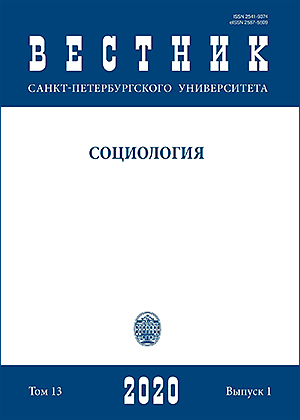Trends of subjective well-being in Russia: 1998–2018
DOI:
https://doi.org/10.21638/spbu12.2020.101Abstract
The article reviews and analyses Russian surveys on subjective well-being, one of the key noneconomic indicators of social development. Two main indicators, the level of happiness and overall life satisfaction, are compared across eight international and Russian research projects, 1998–2018 (European Social Survey, European Values Study, World Values Survey, RLMSHSE, the “Eurobarometer in Russia” project, surveys by VCIOM, “Levada Center”, and FOM). The review illustrates that the main trend in this period was a gradual growth in subjective wellbeing in 2003–2012, which was replaced by the trend for a decrease in life satisfaction and, simultaneously, increase in happiness. The review also shows that the deviation in subjective well-being surveys was maximal in presidential election years (2008 and 2012). VCIOM and the “Eurobarometer in Russia” provide the most distinct results. The paper also demonstrates how using an answer scale with no neutral option tends to overstate the estimated share of the happy and satisfied respondents. Overall, an overview of these comparative results has identified no consistent differences in well-being in Russia by gender, but supports the finding that the share of the satisfied and happy in Russia decreases substantially at the age of 35 years or above. Thus, the indicators of subjective well-being mirror the logic of public opinion in Russia. After 2014, despite the growth in patriotic moods, only a portion of the compared surveys noted an increase in subjective well-being, mostly due to a short-term surge in happiness. The current discrepancy in survey results indicates an ongoing mobilization period in Russian society, which will be followed by either a rise or decline of both indicators.
Keywords:
subjective well-being, happiness, life satisfaction, comparative research, Russia, open data
Downloads
References
References
Downloads
Published
How to Cite
Issue
Section
License
Articles of "Vestnik of Saint Petersburg University. Sociology" are open access distributed under the terms of the License Agreement with Saint Petersburg State University, which permits to the authors unrestricted distribution and self-archiving free of charge.




